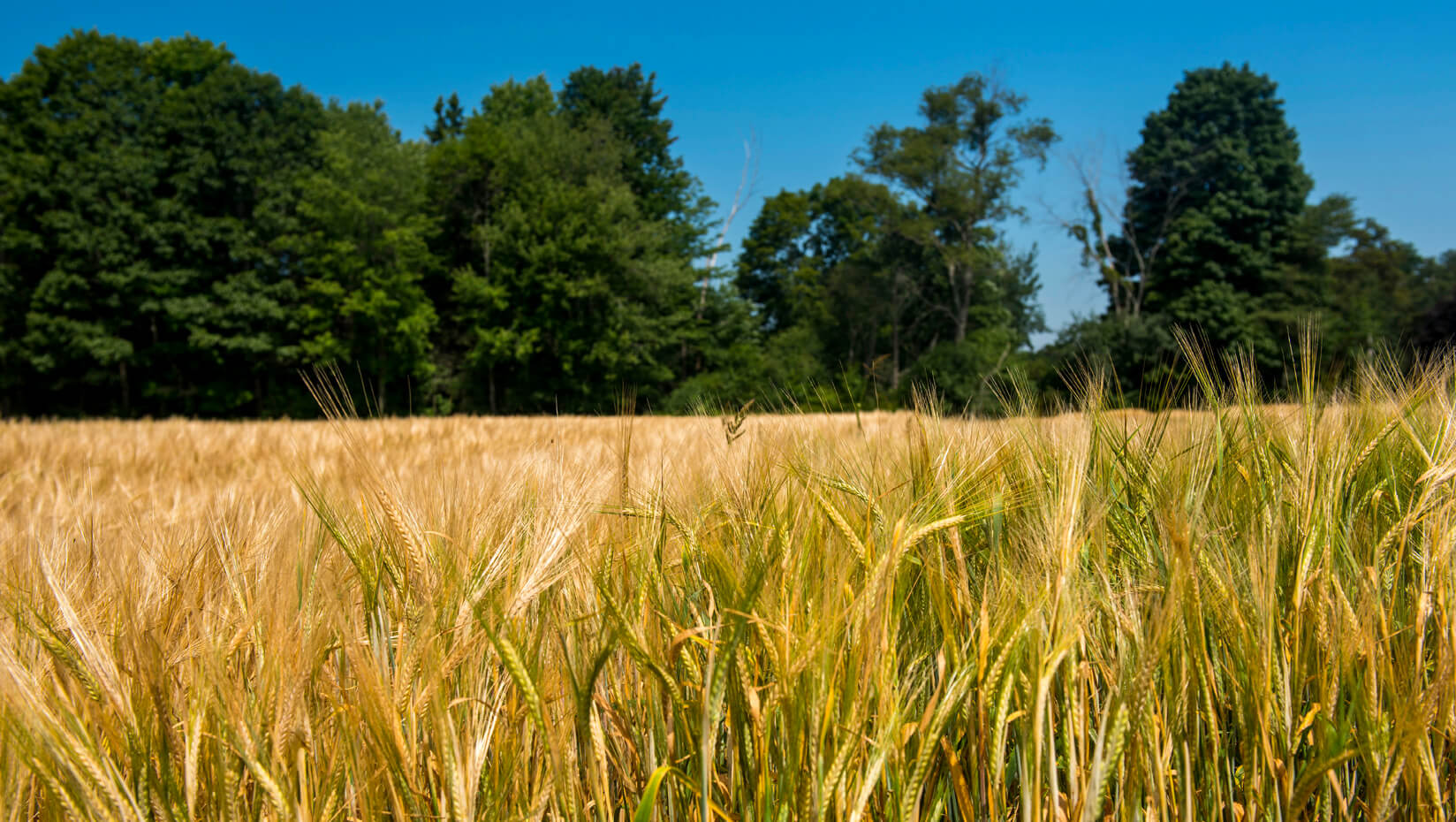
Daigneault to put forests, farms to work reducing greenhouse gases
Adam Daigneault is analyzing how Maine’s working forests and farms can also be employed to mitigate greenhouse gases (GHG) that are warming the planet. The University of Maine E.L. Giddings Assistant Professor of Forest, Conservation, and Recreation Policy is identifying cost-effective and impactful practices — think commercial thinning and no-till farming — for a United States Climate Alliance project made possible by a grant from the Doris Duke Charitable Foundation (DDCF).
Daigneault’s findings will support the Maine Climate Council’s efforts to reduce greenhouse gas emissions by 80% and for the state to become carbon neutral by 2045. The Maine Climate Council is a top initiative of the Governor’s Office of Policy Innovation and the Future, which cultivates collaboration to solve the state’s important long-term challenges.
“A key goal of this project is to look at the economic and physical benefits and costs at multiple scales. Maine’s landscape varies from large tracts of forests under the same ownership to small family farms,” says Daigneault, who grew up in Maine. “Collectively, everybody can play a part in helping meet the state’s climate change goals.”
Daigneault has considerable expertise in the field. He was the lead land use economist in the U.S. Environmental Protection Agency Climate Change Division, where he developed and utilized economic models to estimate the cost and benefits of using forest and agricultural practices to help mitigate GHG emissions.
And later, in New Zealand, Daigneault led that government’s economic analysis to determine the country’s GHG emissions targets for the Paris Agreement.
For this project, his collaborators include five UMaine colleagues — Ivan Fernandez, professor of soil science; Aaron Weiskittel, professor of forest modeling and director of the Center for Research on Sustainable Forests; Erin Simons-Legaard, assistant research professor in forest landscape modeling; Sonja Birthisel, postdoctoral research associate and lecturer; and Jennifer Carroll, Ph.D. student.
Their research comes at a critical time.
Maine’s Climate Future 2020 Update summarized recent international and national reports that indicate “atmospheric greenhouse gas concentrations are increasing because of human actions; they are influencing the climate in unprecedented ways; there is increasing evidence that these changes are accelerating; we have not begun to implement sufficient actions to alter our climate trajectory; and we are heading for a planetary condition no humans have ever experienced.”
Maine’s a natural place to glean added benefits from working forests and farms.
Nearly 90% of the state is forested, and is capable of storing a lot of carbon. A recent UMaine analysis estimated that carbon accumulating in Maine’s forests currently offsets at least 55% of the state’s annual greenhouse gas emissions.
Plus, there’s a diverse, vibrant agriculture sector. Maine leads the nation in the growth of young and beginning farmers enthusiastic about sustainable practices that contribute to climate solutions.
The team will identify strategies for managing farms and forests in the Pine Tree state that both reduce greenhouse gas emissions and maintain the highest possible level of sustainable co-benefits.
The project’s other goals include higher yields for managed farms and forests, improved water quality and sustained water runoff, and better air quality. Collectively, these can enhance the ecological and human health benefits that Maine’s working lands provide.
The researchers are evaluating the potential of 16 natural climate solutions (NCS) to decrease greenhouse gases.
Several of those solutions: reforestation; promoting regeneration of high-value, fast-growing tree species; commercial thinning; no-till farming; using cover crops; and capturing methane from manure for use as a fuel substitute.
“Preliminary analysis indicates that Maine’s working lands could play a significant role in helping Maine be carbon neutral by 2045, or even earlier. However, there is not likely to be a single practice or land use that we can rely on to achieve that goal,” says Daigneault.
“In addition, this project will also help determine what and where certain practices could be implemented efficiently, thereby producing the ‘best bang for the buck.’”
The team will meet and survey forest owners, large commercial potato and blueberry growers, and operators of small diversified family farms about whether the identified solutions can work in the real world.
The research is slated to be completed by spring 2021, when findings, data, and information, including a fact sheet of benefits and costs of the natural climate solutions, will be posted online.
Daigneault and his colleagues also have committed to provide interim findings to the Maine Climate Council by June 2020, which will help form the state’s Climate Action Plan.
They’ll share feedback from landowner focus groups and surveys about barriers and incentives for adoption; Maine-specific alternative scenario pathways and policies; analyses of potential impacts; and an outreach plan for the project’s partners to engage with policymakers and farmers.
Partners in this United States Climate Alliance project are the state of Maine Governor’s Office of Policy Innovation and the Future; the U.S. Department of Agriculture Climate Hub; the Northern Institute of Applied Climate Science; The Nature Conservancy in Maine; Maine Farmland Trust; Maine Climate Table; American Farmland Trust; and Wolfe’s Neck Center of Agriculture & the Environment.
In addition to benefiting Maine, the project — “An Integrated Approach to Quantifying the GHG Mitigation Potential of Natural Climate Solutions from Maine’s Working Lands” — could speed up implementation of natural climate solutions in other states with similar goals and land management systems.
Project funding includes a $132,174 grant from the Doris Duke Charitable Foundation (DDCF) to the United States Climate Alliance; $25,000 from Maine Farmland Trust; and $22,981 from a Senator George J. Mitchell Center for Sustainability Solutions grant.
The mission of the Doris Duke Charitable Foundation is to improve the quality of people’s lives through grants supporting the performing arts, environmental conservation, medical research and child well-being, and through preservation of the cultural and environmental legacy of Doris Duke’s properties.
Contact: Beth Staples,207.581.3777, beth.staples@maine.edu
